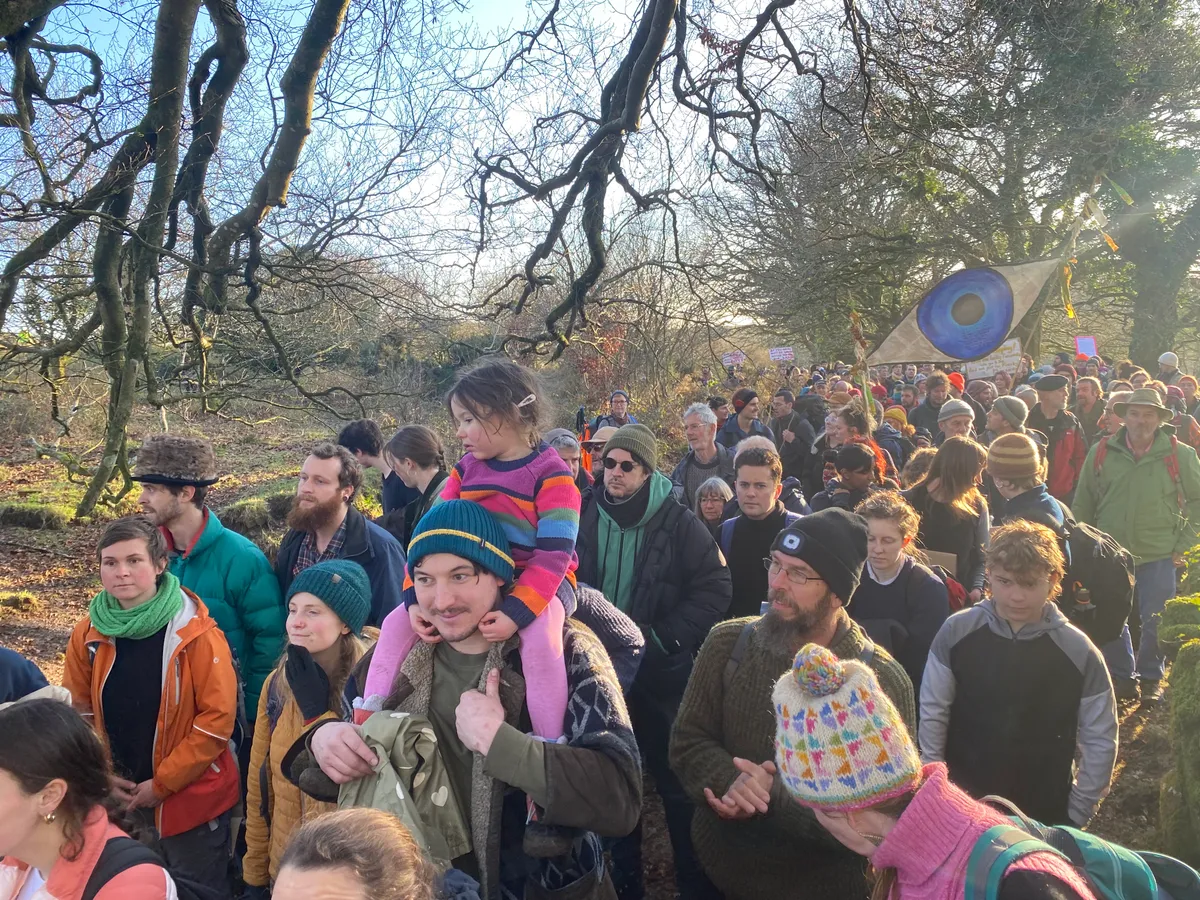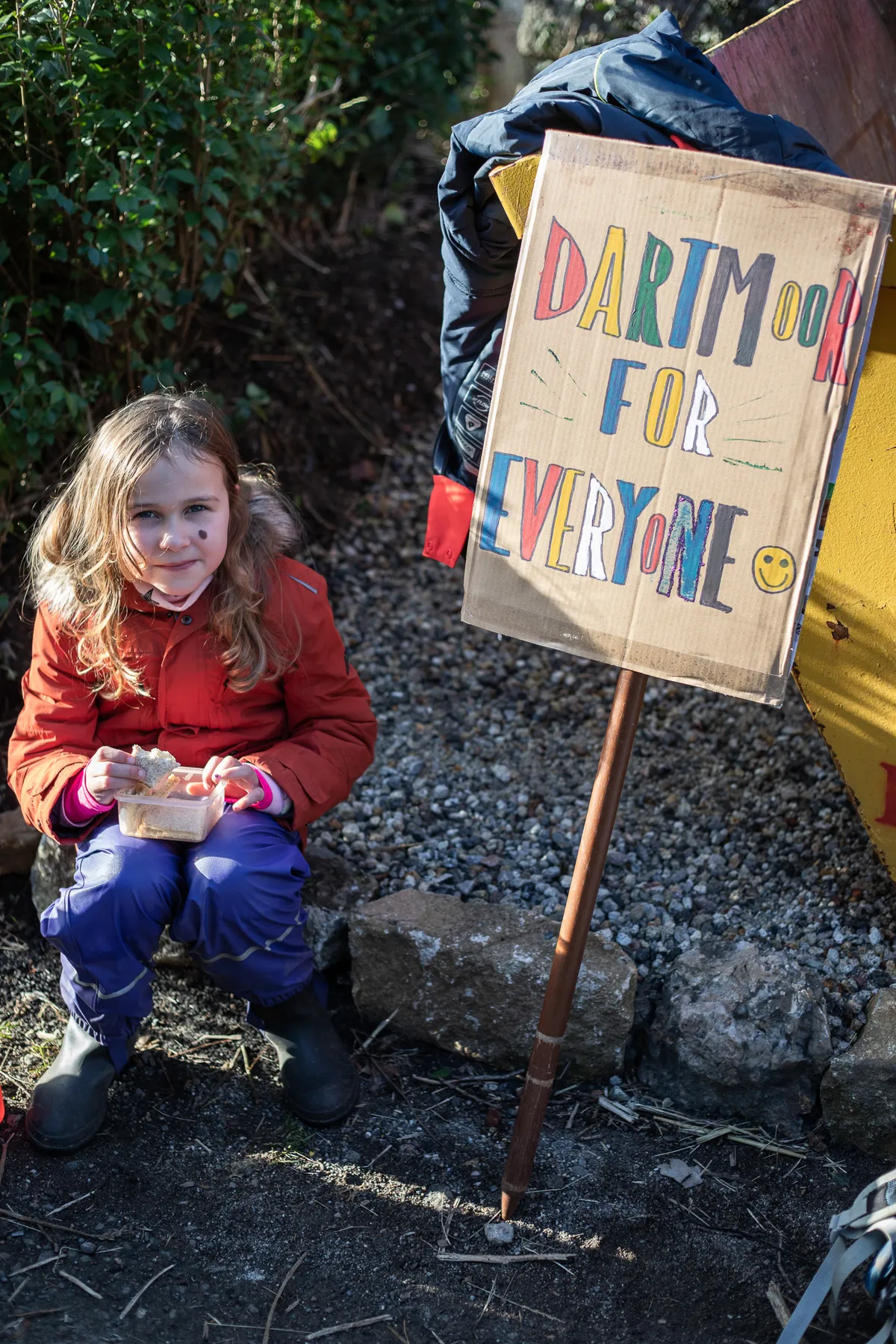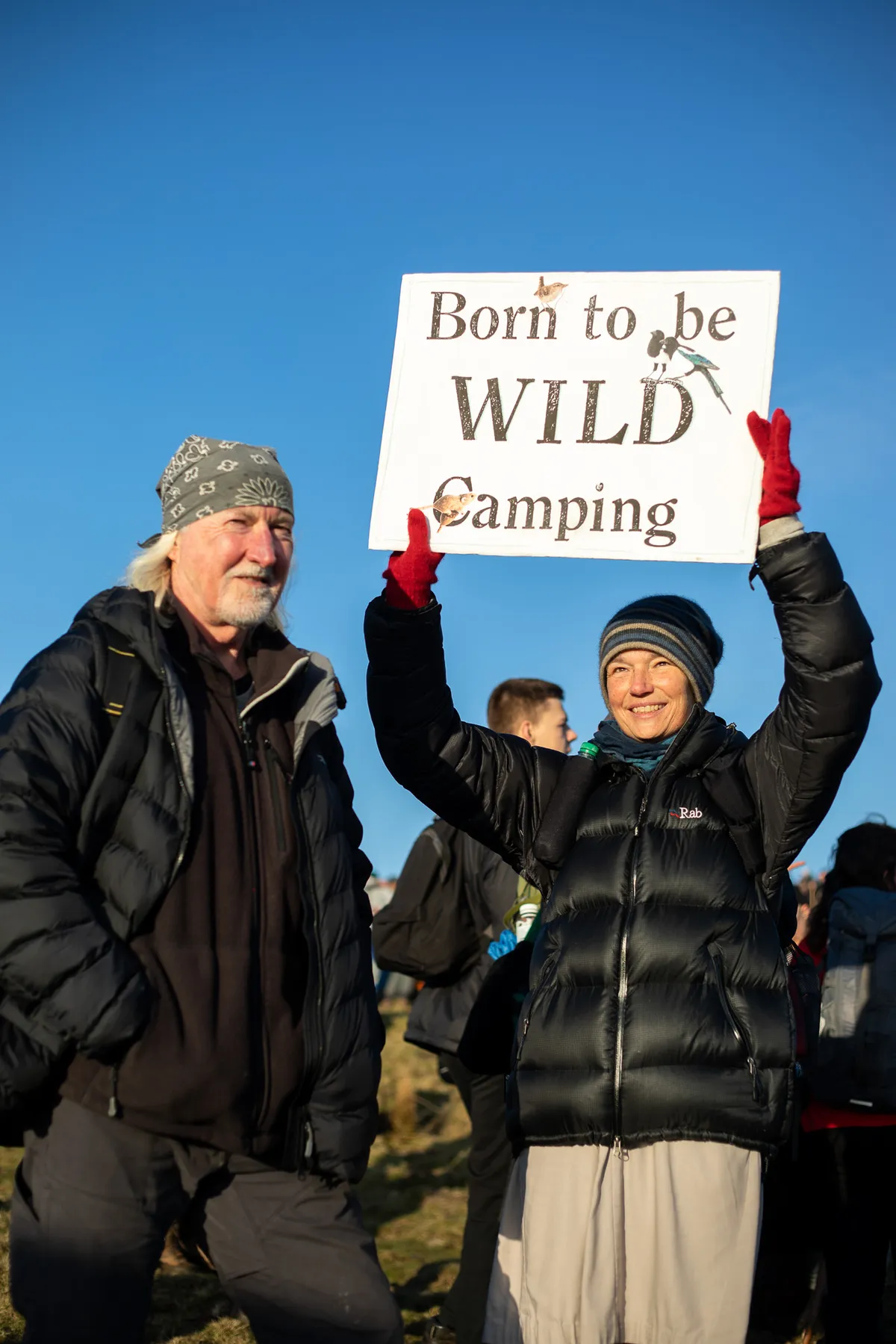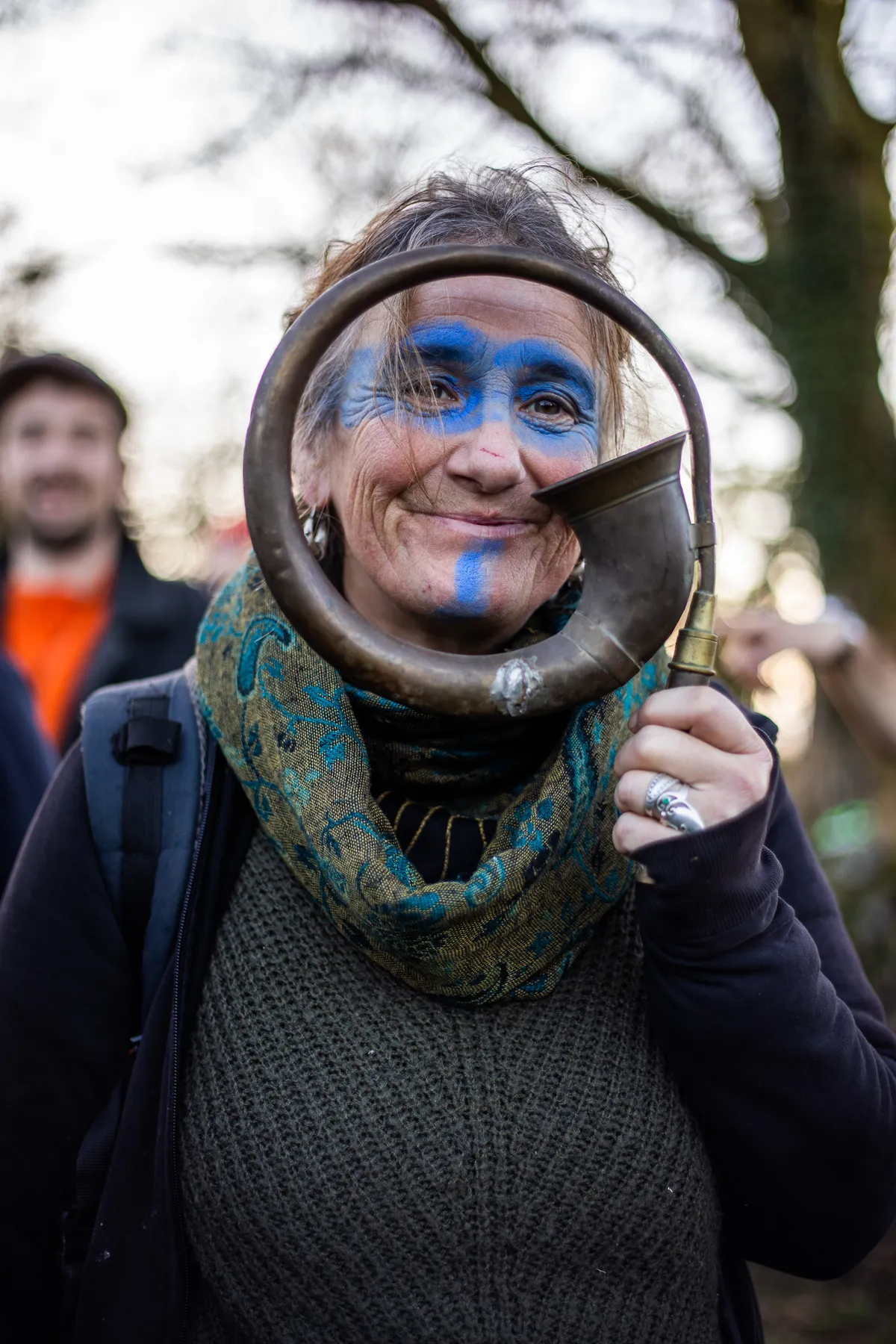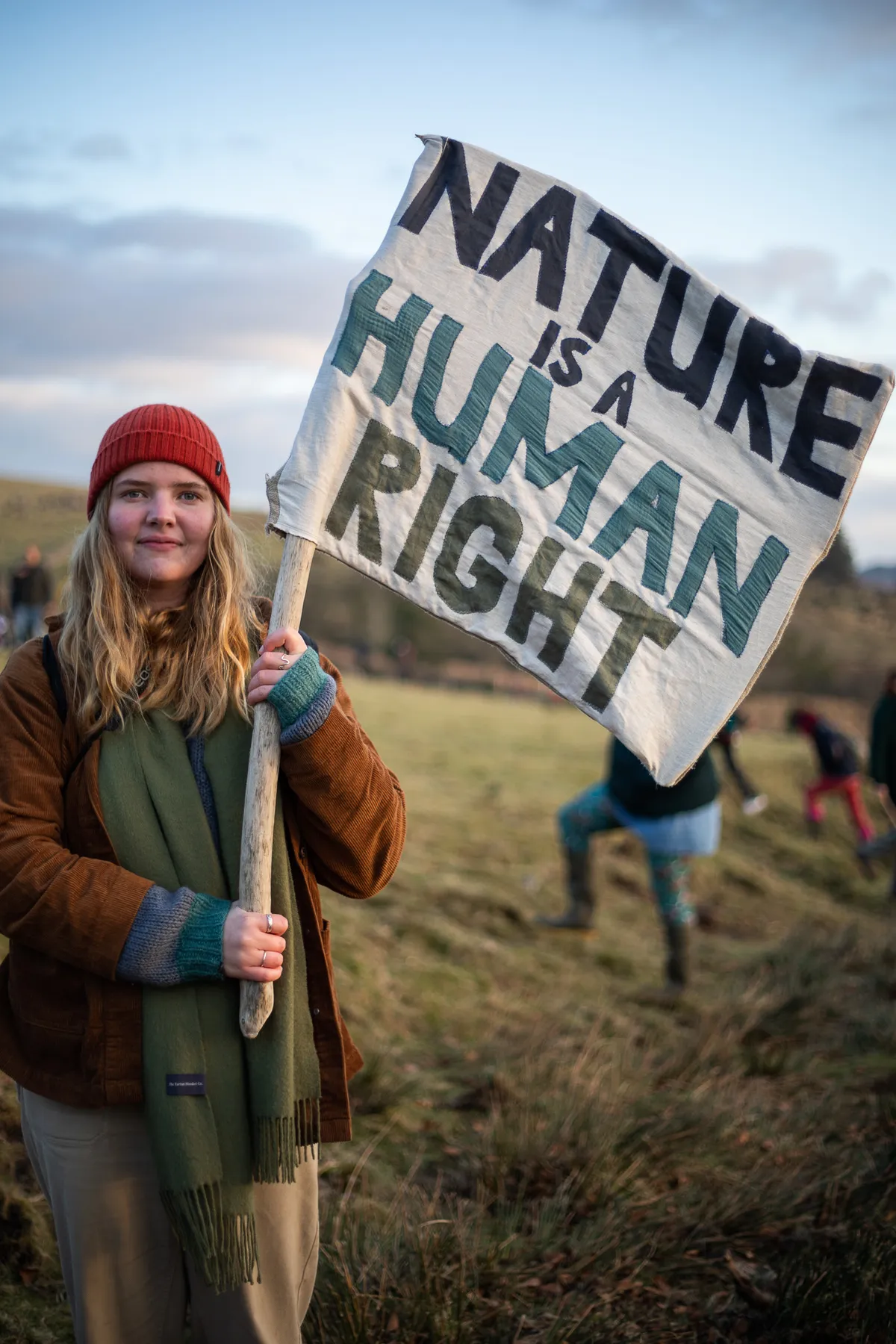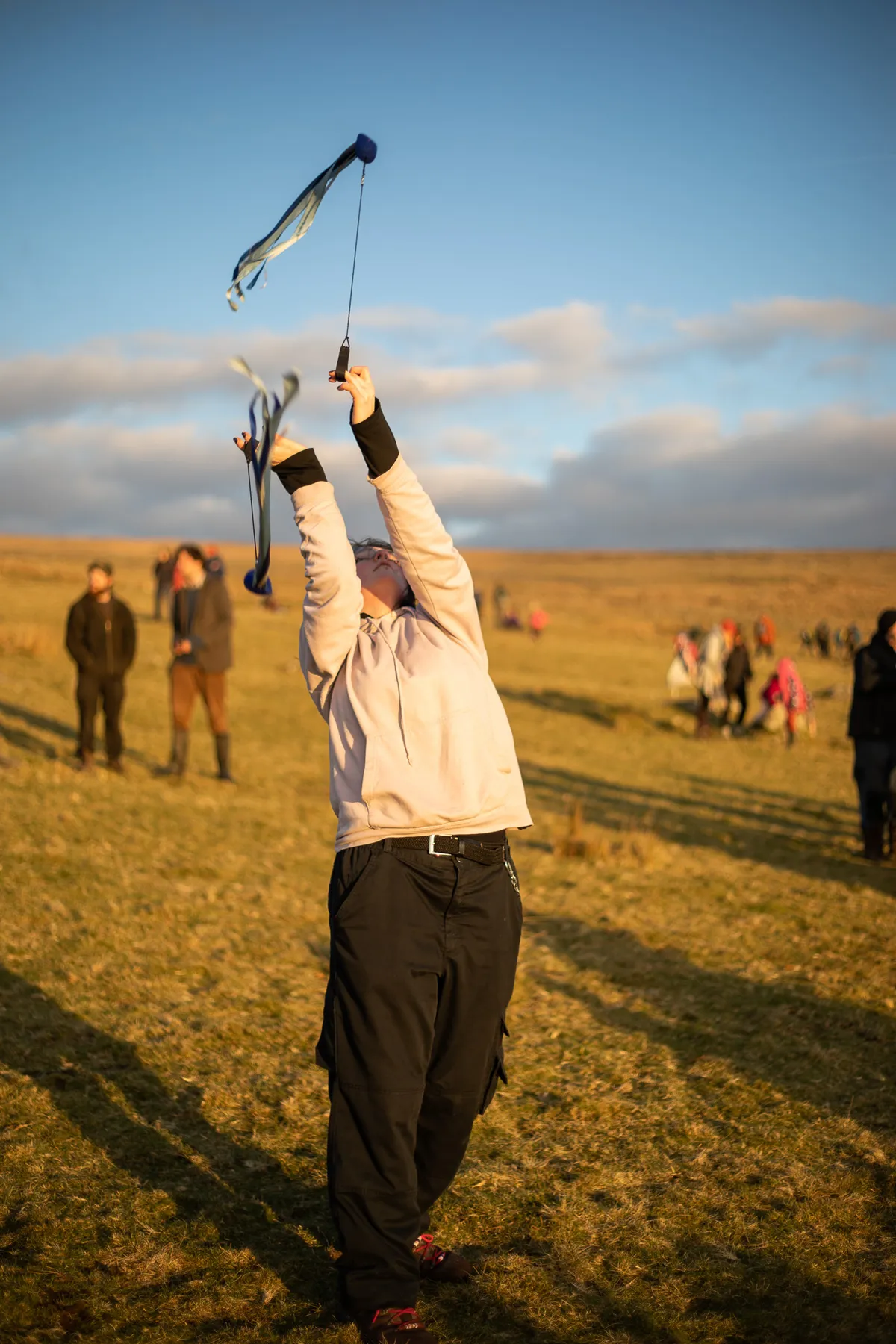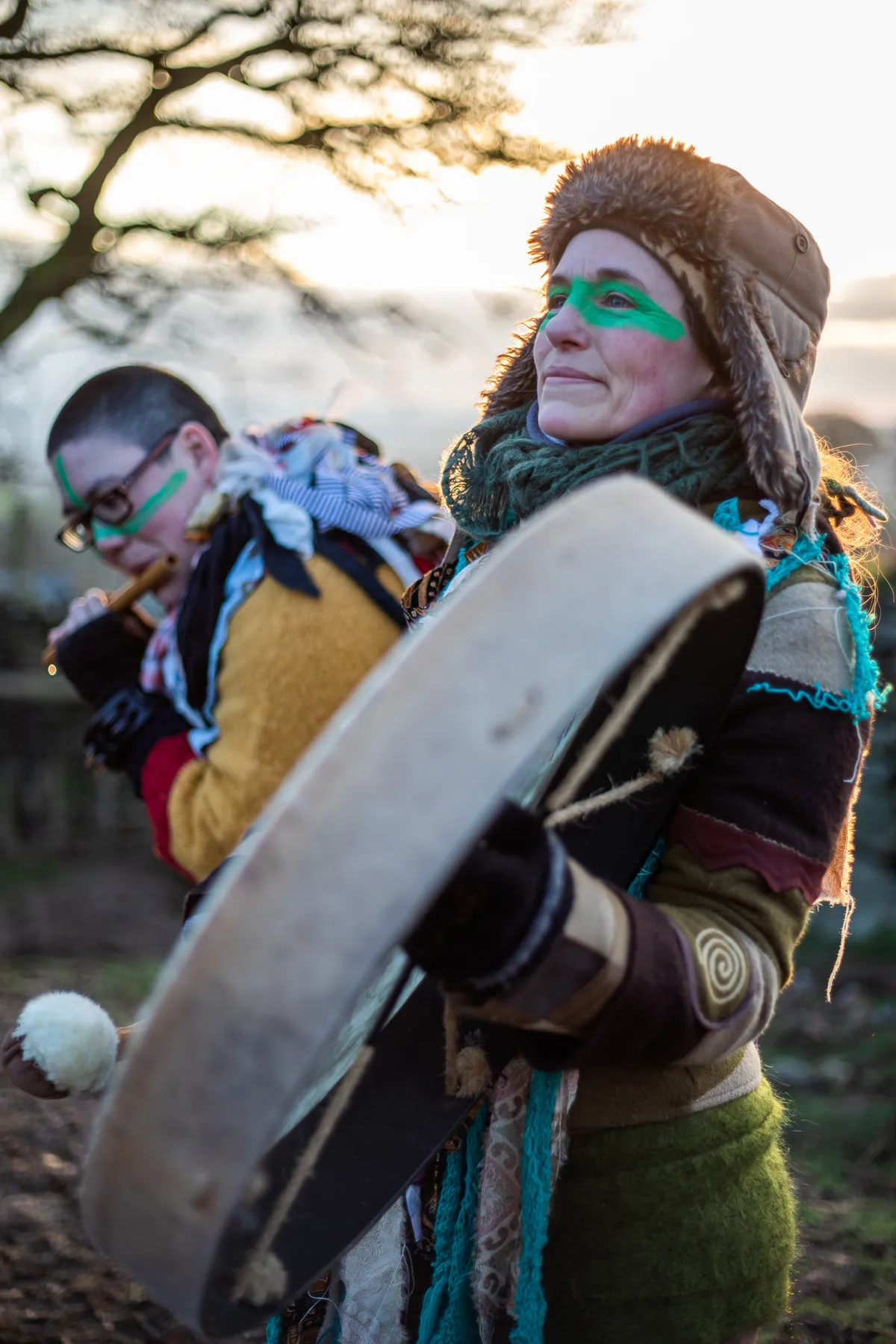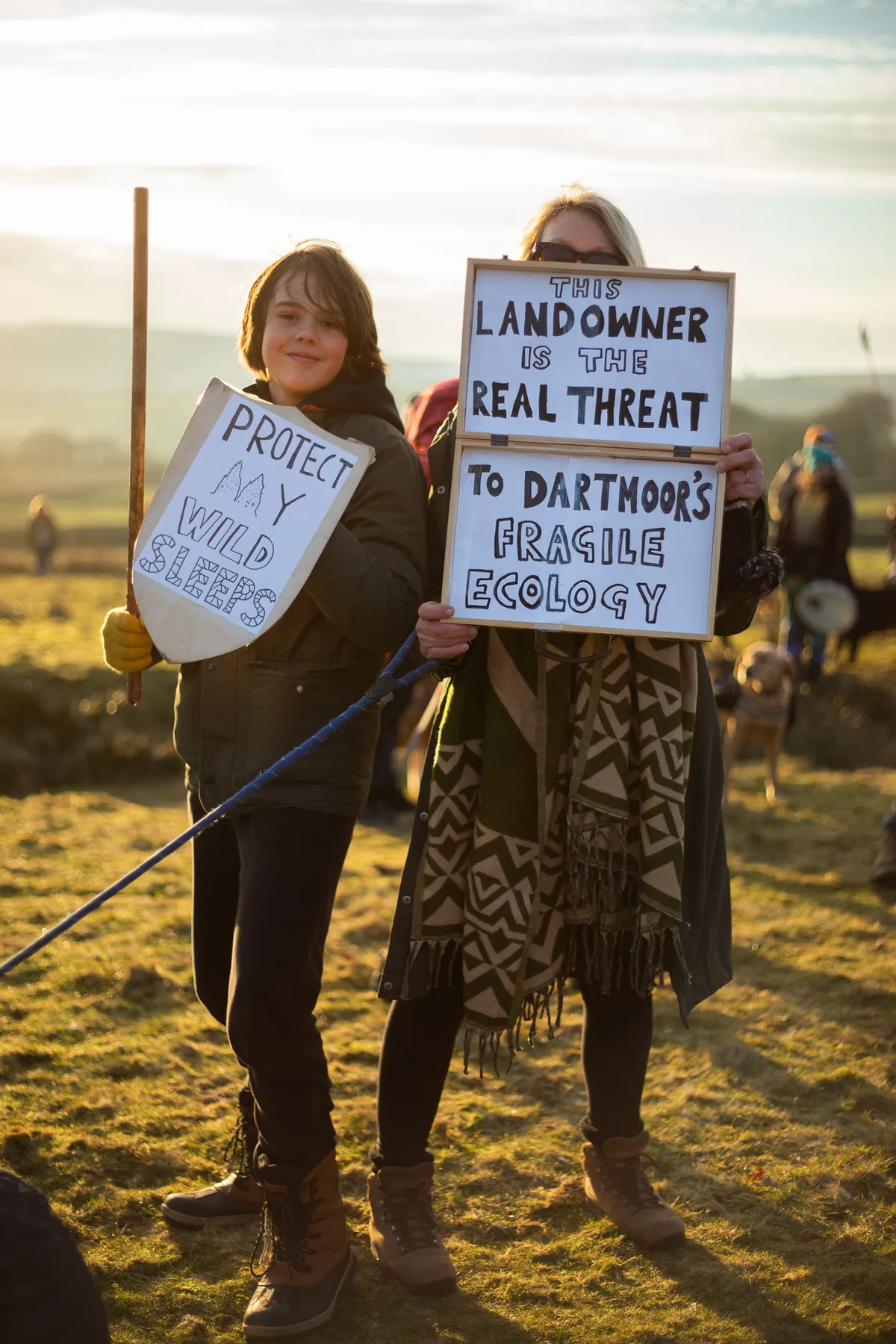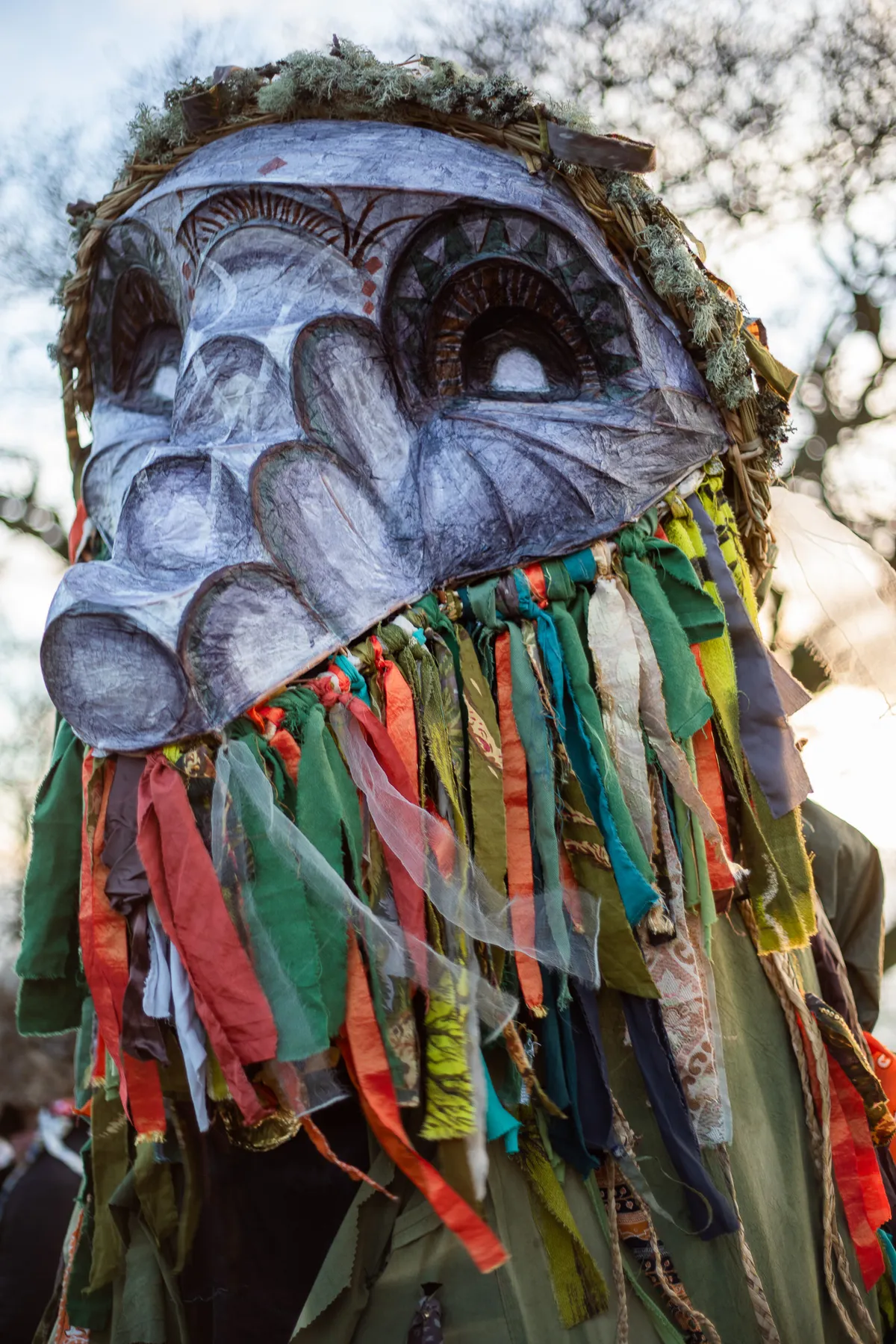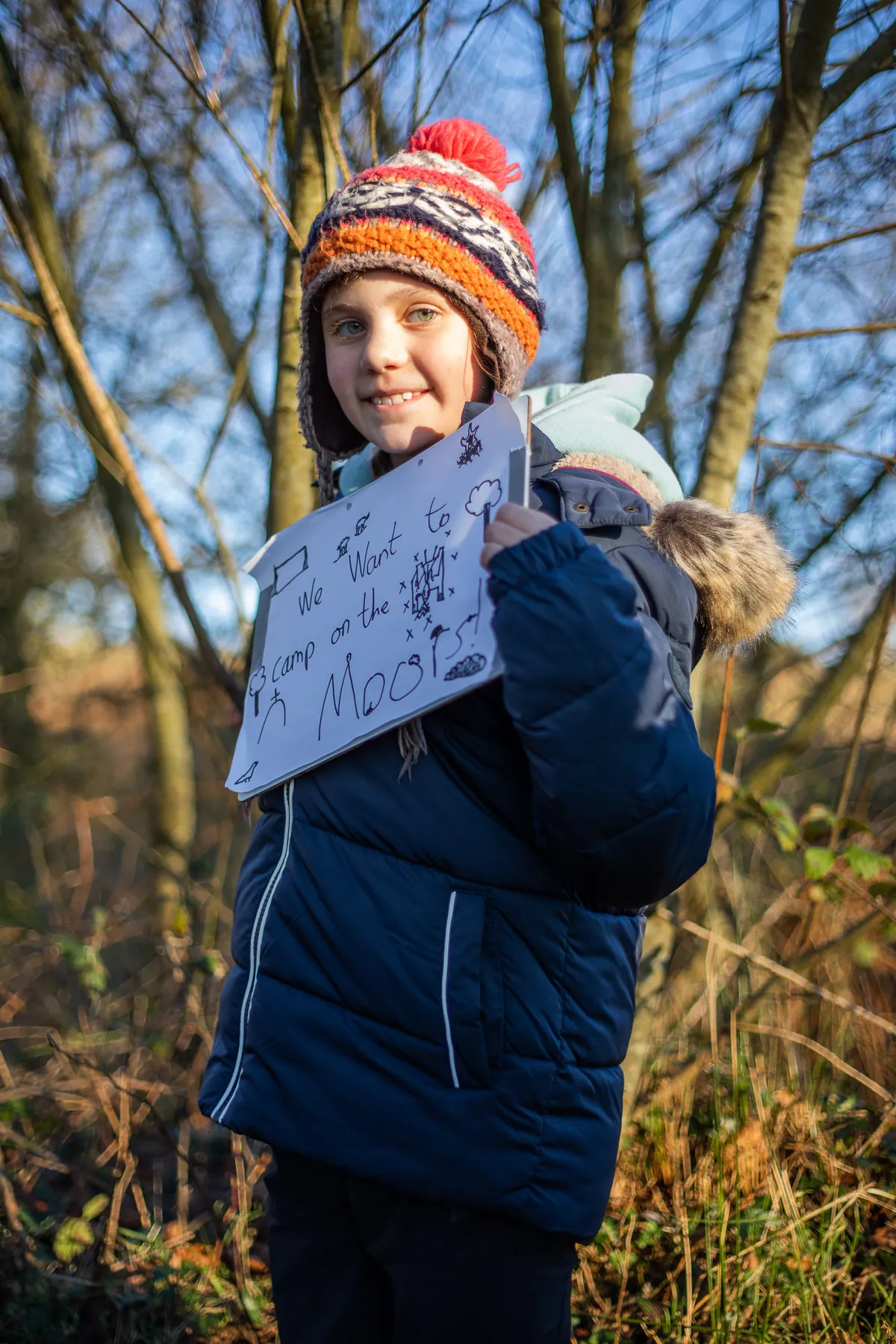On 21 January, a cold bright winter’s day, some 3,000 walkers gathered on Stall Moor to protest the loss of wild-camping rights in Dartmoor, following a recent High Court decision that determined no such legal right existed.
Against a backdrop of billowing flags, beating drums and the sun setting over the tors, the ancient spirit of ‘Old Crockern’ – a ghostly rider of Devonian legend – was raised to mourn the recent court decision and loss of camping rights that were understood to be commonly held.
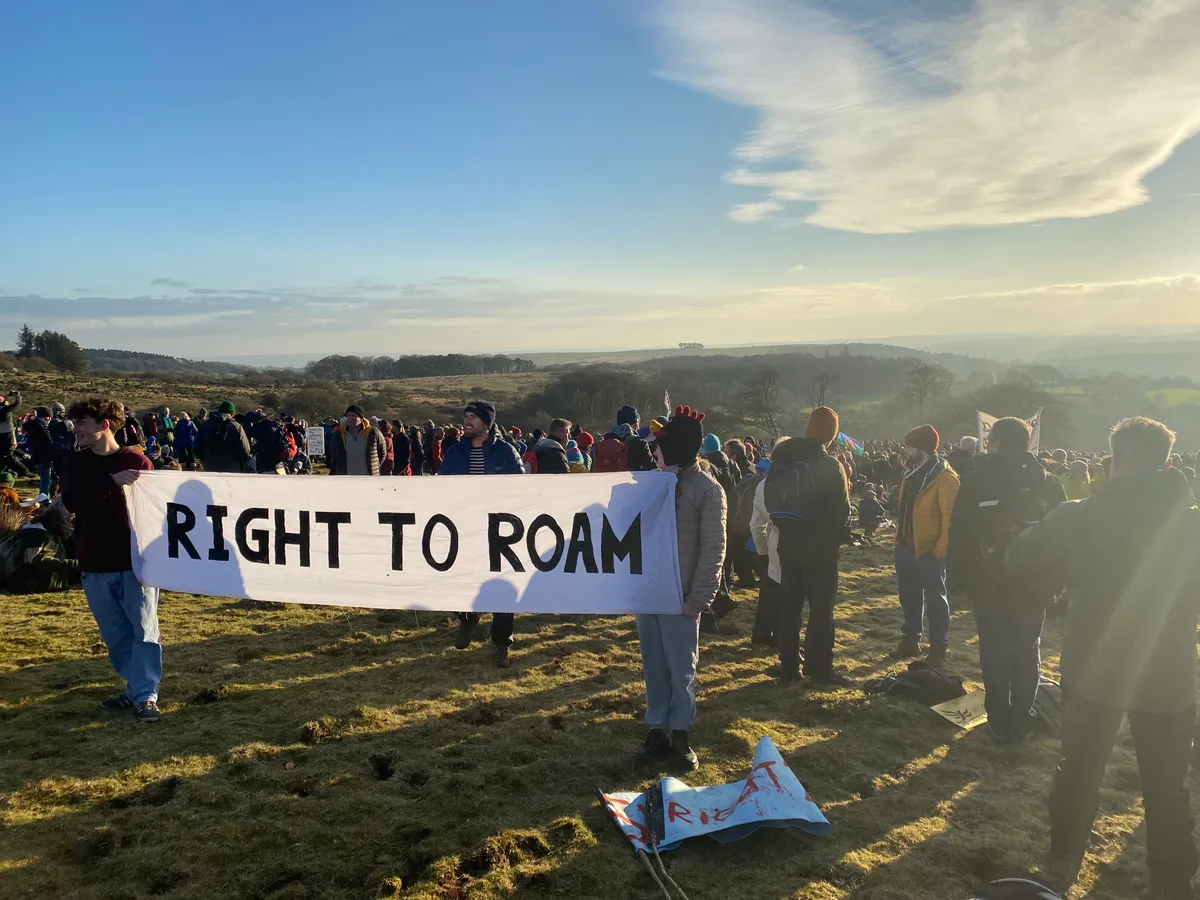
Earlier this month, Alexander Darwall, a hedgefund manager and landowner of the 4,000-acre Blachford Estate, won his case against Dartmoor National Park Authority, which had argued that the Dartmoor Commons Act of 1985 – which states that the public have “a right of access to the commons on foot and on horseback for the purpose of open-air recreation”– gave visitors the right to camp.
The legal team for Darwall - who offers pheasant shoots, deerstalking and accommodation on his estate - argued that no right existed to pitch tents, and that the term 'recreation' did not include overnight stays.
On Friday 13 January, Sir Julian Flaux, chancellor of the High Court, ruled that the act contained no provision to camp overnight, and that “any such camping requires the consent of the landowner”.
Although the decision does not make wild camping a criminal offence, it gives a landowner the right to use reasonable force to remove a visitor from their land once they begin to camp, or act in any other way that is not permitted by law.
When BBC Countryfile Magazine asked Alexander Darwall whether he would like to explain his opposition to wild camping on Dartmoor, his spokesman said: "Alexander has chosen not to comment on this private matter."
Prior to the decision, Dartmoor stood as the last place in England and Wales where wild camping was permitted, unlike Scotland, where wild camping is permitted across most the country. (See our guide to wild camping for more information.)
The loss of this last landscape to permit wild camping prompted a swift and strong public response, with thousands of people gathering on Stall Moor on Darwall’s estate to protest the decision, organised by the campaign groups Right to Roam and The Stars Are For Everyone.
Ian Rhodes, a scout leader, said he decided to attend because the moors have long been a precious place where people, especially young people, can connect with nature.
“I’m here because I’m fed up that we are having our rights taken away. Dartmoor is a very special place to me, I grew up nearby, I’m a 10 Tors leader, a scout leader, I’ve wild camped up here for the last 30 years, and I don’t want to see it taken away, not for myself but for future generations. All my children have wild-camped and I see scouts and what they get out of it. It’s a wonderful thing to reconnect with nature and be up here, and to have that taken away is not right. The National Parks are here for people to come and enjoy, in whatever way that might be.”
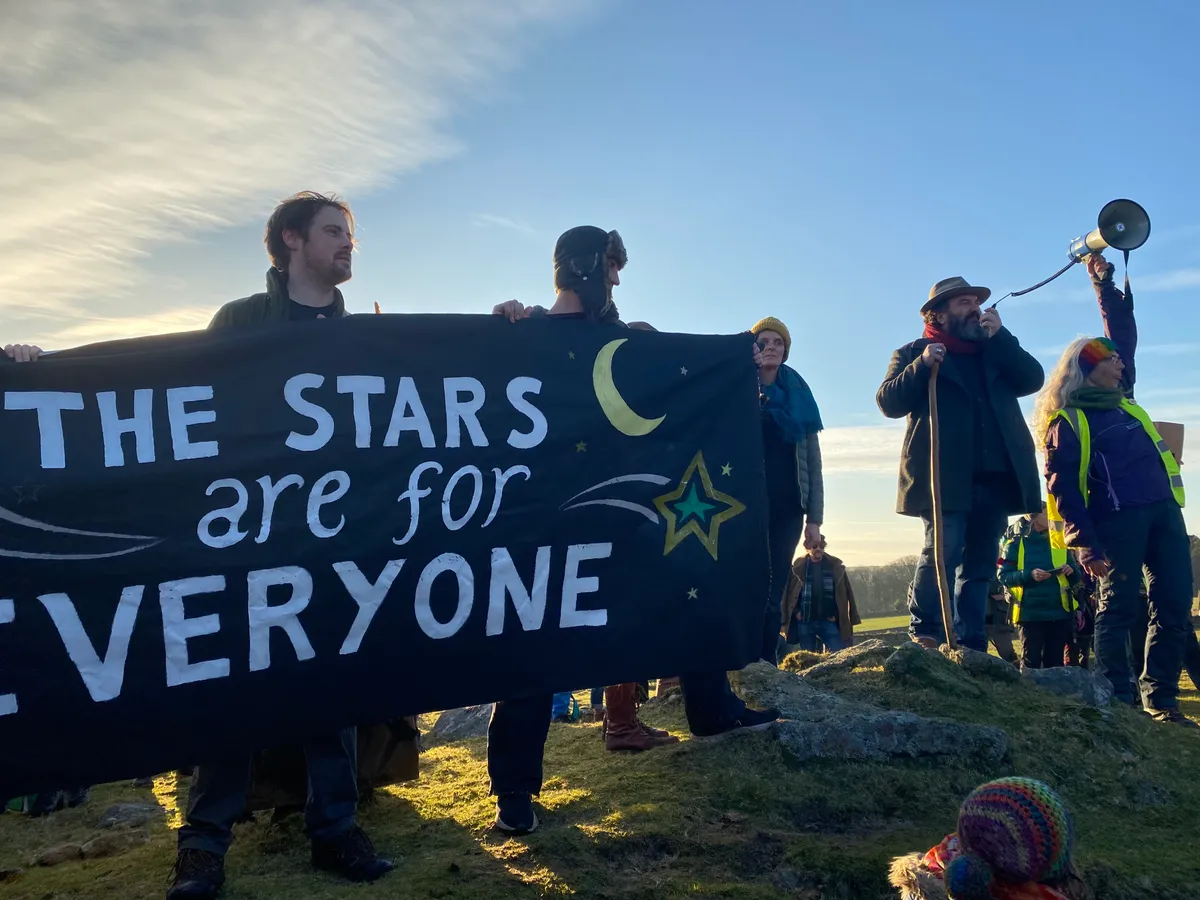
Walker Lizzie said: "It’s always meant a lot to me to be able to sleep outside and have that connection to wilderness and for that to be taken away from people - not just from myself but from young people, everybody - it’s something that really needs push-back, where we can."
Storyteller Martin Shaw said that his childhood in Torquay had been shaped by the freedom that camping on Dartmoor provided. "I didn’t grow up on Dartmoor, I grew up in Torquay in an estate. And it meant an awful lot to me, and to many people I know – it meant an awful lot to my father, it meant an awful lot to my grandmother Monica – that this was a place that we could come and something got fertilised in our imaginations."
Dartmoor National Park Authority (DNPA) has decided to appeal the decision, and is in discussions with the Dartmoor Commons Owners’ Association to determine how permissive camping can continue in certain sections of the national park.
In the meantime, camping is permitted in some places. The DNPA states: "If you can carry everything you need in your backpack as part of a Dartmoor walking expedition, you can backpack camp for one or two nights in some areas of open moorland, and out of sight from roads or settlements using a ‘no impact’ approach."
Find out where you can continue to legally camp on this interactive map.
